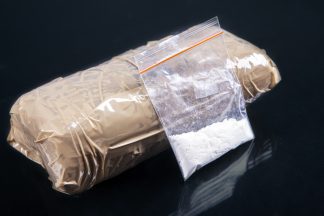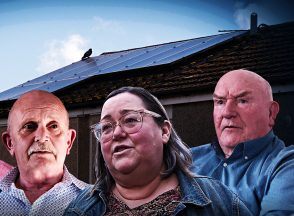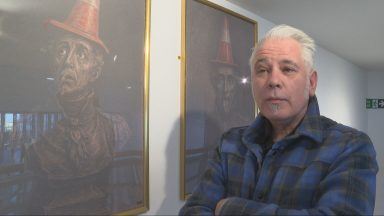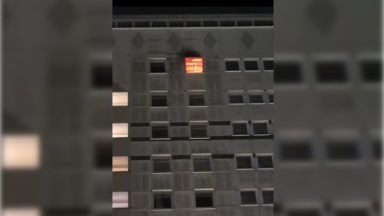A teenager accused of killing 13-year-old Grace Handling by supplying her with ecstasy admitted to police he had given her pills, a court has heard.
Detective Sergeant Euan Bell was giving evidence at the trial of Callum Owens, 19, who denies the culpable homicide of Grace by supplying her with the drug at his home at 26 Arran Place, Irvine, Ayrshire, on June 28, 2018.
Sgt Bell told the High Court in Glasgow that Owens was taken to Saltcoats police station around 8.30pm the following day as a witness after Grace’s body was found in the living room of his home at 2.46pm.
Sgt Bell said he arrived at the police station around 10pm and spoke to Owens who told him: “I sold her the pills, no wait – I didn’t sell the pills, I gave her them.”
The officer said the comment came after he took Owens’ iPhone from him and added: “I thought he was deleting messages.”
The court heard that Owens had been handed the keys of Arran Place at 10am on June 28, 2018 and he admitted during a police interview that he and Grace had been there that night.
During the interview Owens was asked by Sgt Bell: “You were visited by your friend 13-year-old Grace Handling,” and he replied: “Yes.”
Owens was then asked: “She remained with you for the evening, is that correct,” and said: “Yes.”
He was asked if he carried out any CPR on Grace and said he had.
Sgt Bell said to Owens: “Did you attempt to seek medical help for her,” and replied: “No.”
Owens was then asked if he had considered phoning 999 and he replied: “No comment.”
Pathologist Dr John Williams told the court that the cause of Grace’s death was ecstasy intoxication.
He told Mr Prentice that Grace had suffered a fine linear skull fracture and a blood sample revealed a very high level of ecstasy and a trace of cannabis.
Dr Williams said: “It would be in keeping with taking ecstasy and then the girl collapsing onto the ground.”
The pathologist added that her skull at the point where the fracture occurred was thin.
QC Mr Findlay asked Dr Williams: “Why did this girl die?”
He replied: “The most significant finding is the very high level of ecstasy in the blood. That is the most significant finding.”
Dr Williams told the court that ecstasy can cause rapid heartbeat, high blood pressure and seizures.
Denise McKeown, forensic toxicologist, said: “Ecstasy is a stimulant drug. It increases energy levels and makes you feel good. It gives you a feeling of euphoria. It can affect blood pressure and heart rate.”
She was asked by QC Donald Findlay about the level of ecstasy in Grace’s blood.
He said: “It was in a range that could be fatal not just to a child, but to an adult,” and Dr Williams replied: “Yes.”
The trial before judge Lord Matthews continues.
Follow STV News on WhatsApp
Scan the QR code on your mobile device for all the latest news from around the country

























